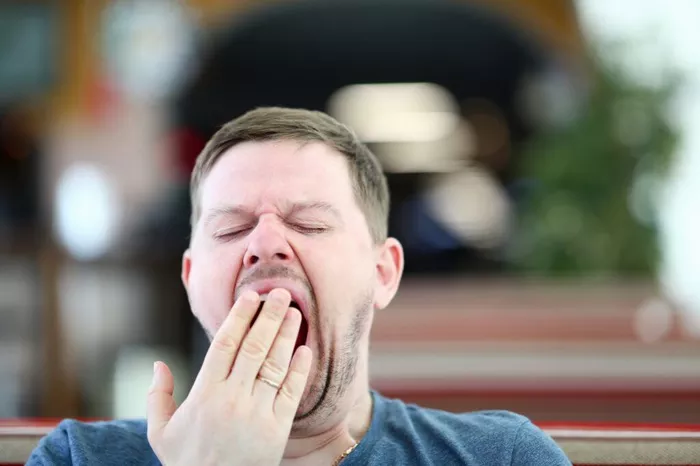Sleep is one of the most critical aspects of overall health, yet many people underestimate its importance for maintaining healthy hair. Chronic sleep deprivation has been linked to numerous health issues, including weakened immunity, cognitive decline, and even hair loss. But does lack of sleep cause permanent hair loss, or is the damage reversible? To answer this question, we must explore how sleep affects hair growth cycles, the role of stress hormones, and whether prolonged sleep deprivation can lead to irreversible damage to hair follicles.
How Sleep Affects Hair Growth Cycles
Hair growth occurs in a cycle with three main phases:
Anagen (Growth Phase): This is the active phase where hair follicles produce new hair cells, lasting anywhere from two to seven years.
Catagen (Transition Phase): A short phase (about two weeks) where hair growth slows, and the follicle begins to shrink.
Telogen (Resting Phase): Hair stops growing and eventually falls out, making way for new hair. This phase lasts around three months.
Disruptions in this cycle—whether from poor nutrition, illness, or lack of sleep—can push more hair follicles into the telogen phase prematurely, leading to excessive shedding, a condition known as telogen effluvium.
Sleep is essential for cellular repair and regeneration, including the health of hair follicles. During deep sleep, the body produces growth hormone, which helps in tissue repair and regeneration. Without adequate sleep, the hair growth cycle can be disrupted, leading to weaker, thinner hair over time.
The Role of Stress Hormones in Sleep Deprivation and Hair Loss
One of the most significant ways lack of sleep contributes to hair loss is through increased stress hormones, particularly cortisol. Chronic sleep deprivation keeps cortisol levels elevated, which can negatively impact hair follicles in several ways:
- Reduced Blood Flow to Follicles: High cortisol levels constrict blood vessels, reducing nutrient and oxygen supply to hair follicles.
- Inflammation: Prolonged cortisol elevation triggers inflammation, which can damage hair follicles and inhibit growth.
- Premature Hair Shedding: Elevated stress hormones can push hair follicles into the telogen phase too soon, leading to noticeable hair thinning.
While cortisol-induced hair loss is often temporary, prolonged high stress levels can weaken follicles to the point where regrowth becomes more difficult.
Can Chronic Sleep Deprivation Lead to Permanent Hair Loss?
The key question is whether lack of sleep can cause irreversible hair loss. The answer depends on several factors:
Duration of Sleep Deprivation: Short-term sleep loss may cause temporary shedding, but long-term deprivation can lead to more severe follicle miniaturization.
Underlying Conditions: If sleep deprivation exacerbates conditions like androgenetic alopecia (genetic hair loss), the hair loss may become permanent without intervention.
Scalp Health: Poor sleep weakens the immune system, making the scalp more susceptible to infections or conditions like alopecia areata, which can cause patchy hair loss.
In most cases, sleep-related hair loss is reversible once sleep patterns improve. However, if follicles remain dormant for too long due to chronic stress or nutrient deficiencies, they may eventually stop producing new hair altogether.
How to Prevent Sleep-Related Hair Loss
If you’re experiencing hair thinning due to poor sleep, here are some steps to reverse the damage:
Prioritize Sleep Hygiene: Aim for 7-9 hours of quality sleep per night. Maintain a consistent sleep schedule and create a restful environment.
Manage Stress: Incorporate relaxation techniques such as meditation, yoga, or deep breathing to lower cortisol levels.
Eat a Balanced Diet: Ensure adequate intake of protein, iron, zinc, and vitamins (particularly B vitamins and vitamin D) to support hair health.
Scalp Care: Use gentle hair products, avoid excessive heat styling, and consider scalp massages to stimulate blood flow.
Conclusion
While occasional sleep deprivation may lead to temporary hair shedding, chronic lack of sleep can contribute to long-term hair thinning—especially if combined with genetic predisposition or other health conditions. The good news is that in most cases, improving sleep quality and reducing stress can help restore hair growth. However, if hair loss persists despite lifestyle changes, consulting a dermatologist or trichologist is essential to rule out permanent follicle damage.
By prioritizing rest and managing stress, you can protect not only your hair but also your overall well-being. Remember, healthy hair starts with a healthy body—and sleep is a cornerstone of that foundation.
Related Topics:
Will Taking Collagen Help With Hair Loss
Will Iron Help My Hair Grow Back? A Comprehensive Guide
Will Taking Vitamin E Help My Hair Grow


